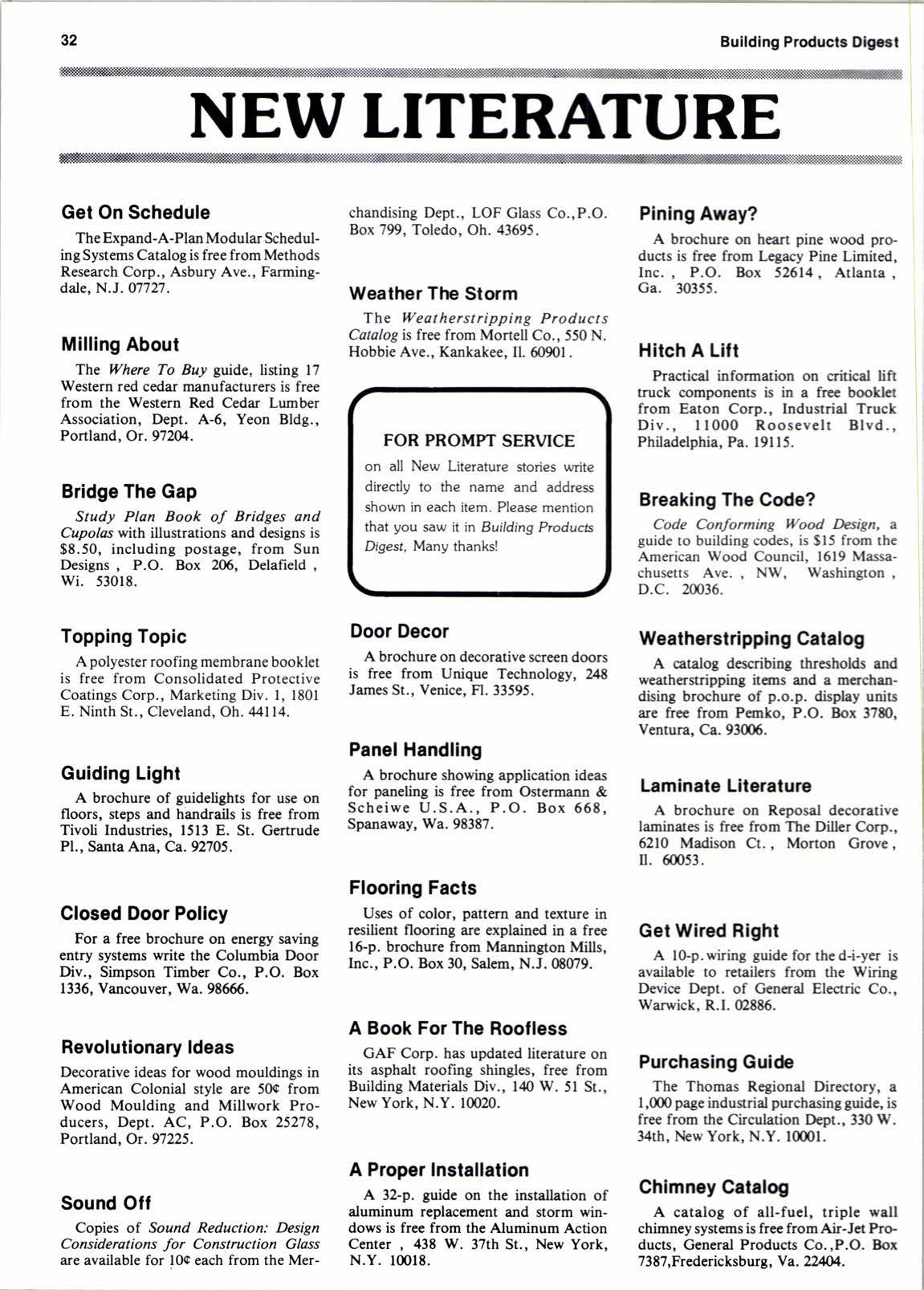
3 minute read
Hardwood franchise fills gap in market
ERANCHISED hardwood stores, f like doughnut or hamburger stands, are the business of Austin Hardwoods, Inc., Austin, Tx.
Starting in 1972 in Austin, the franchise network has grown to 15 stores across the nation with Texas being the stronghold as home for six operations.
The company, which advertises very little, usually a full page in Fine Woodworking, offers a low overhead concept with high growth potential for the man who wants to be in business for himself. Typically, the man who responds to the idea is an admirer of fine hardwoods, often a d-i-y woodworker. The list of franchisees includes a retired engineer, a college professor and an investor who keeps a hired manager in his store.
President Carl Lasner terms the parent company "extremely conservative" and expains why they are selective in accepting newcomers into the operation. " We want to be sure it will be a good investment for the franchisee," he says.
When approached by a potential franchisee, the company (for $1500 earnest money) conducts a market analysis. This research considers current business activity in the area, grofih trends, population density and competition to indicate the feasibility of a franchise in a given city. The proportion of retail/hobbyist trade to commercial trade also is determined.
If the market research gives the project a green light, the next step is for the prosp€ctive franchisee to attend training in Austin. An extensive three to four weeks of classroom and on-the-job instruction covers a wide scope including wood identification, basic grading, purchasing, bookkeeping, site and building selection, selling techniques, material handl-
Story at a Glance
Hardwood lranchise oraginated in Texas . . . low oYerheadthigh growth concept. olfers independent businessman lots of leeway.
ing, legal questions, marketing policies, pricing and credit counseling. When the training is completed, the franchisee is given a master checklist to us€ in setting up the operation. This includes everything needed from building specifications to bundling equipment. When the store is ready to open, Austin Hardwoods provides an initial inventory compatible with the predetermined market at cost.
Support and guidance, including purchasing help and a@ess to cooperative advertising, is ongoing although the franchisee is fre to purchase wood from any source. The parent company, which gives its name to all stores, encourages owners to buy from them by offering ready availability of hard-to-get woods, mixed loads and a Solo markup.
The relationship on the part of the owner becomes voluntary after the opening except for the payment of a set nominal monthly fee. There are no monthly royalties. 4scol.ling to Lasner, after the franchisee pays the present purchase cost of $20,0(D to the parent company, leases a store, purchases equipment and the initial inventory, he has a total investment of under $100,000. The franchisee is free to disenfranchise the store after two years.
An exceptionally good manager,
Lasner says, cian recoup his investment within lt months with lt to 2{ months being the average. Although an exception, the Dallas store recovered its entire S50,m investment in l0 months when it opened a few years ago.
Usually the stores are selfoperated with one or two employees. The marketing emphasis in each store varies. Phoenix, Az., acaording to Lasner, is retail, catering to fine woodworkers because of the large retired population. Ddlas, which is company owned, and acts as a distribution point for the other stores, concentrates on commcrcial accounts with cabina and millwork manufacturers. School woodworking accounts are big in some stores.
Austin Hardwoods, Inc. as the parent company stocks a tremendous variety of domestic and foreign species for distribution to the stores, explains lasn€tr, importing some exotic woods and buying oth€rs from importers. The domestics are the best quality available, bought from the best mills, he maintains, by Arstin buyers who know their product.
Lasner tells how he got into the wood business quite by accident. A graduate of the University of Tcxas with a degree in philosophy, he started working for a miniconglomerate in Austin which hap pened to have a lumbcr division. He got the idea of a hardwood specialty store, resigned his job, and opencd the frst Austin Hardwoods. Five years later he expandcd to El Paso, Tx., then to a third unit in Tircson, Az., and back to Dallas for no. 4. From this beginning, the nationwide franchisc grew. This year becauc of the slow esonomy, expansion has been limited to a new unit in Scattlc, Wa., but as soon as things look more encouraging, Lasner is ready to moye ahead.










